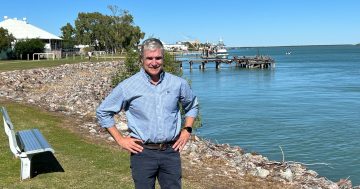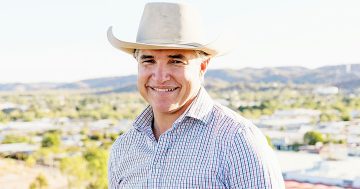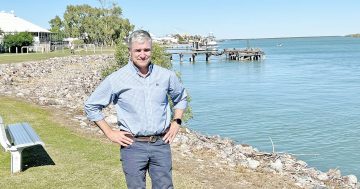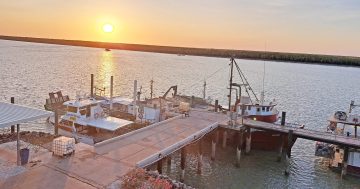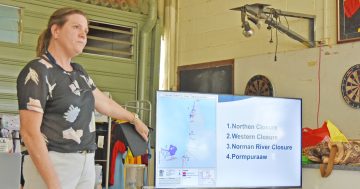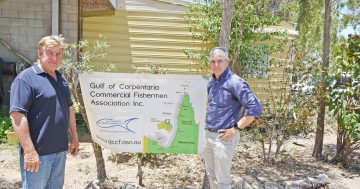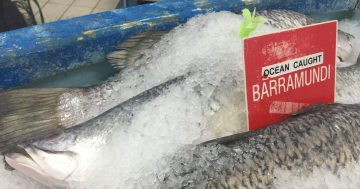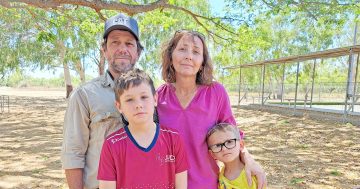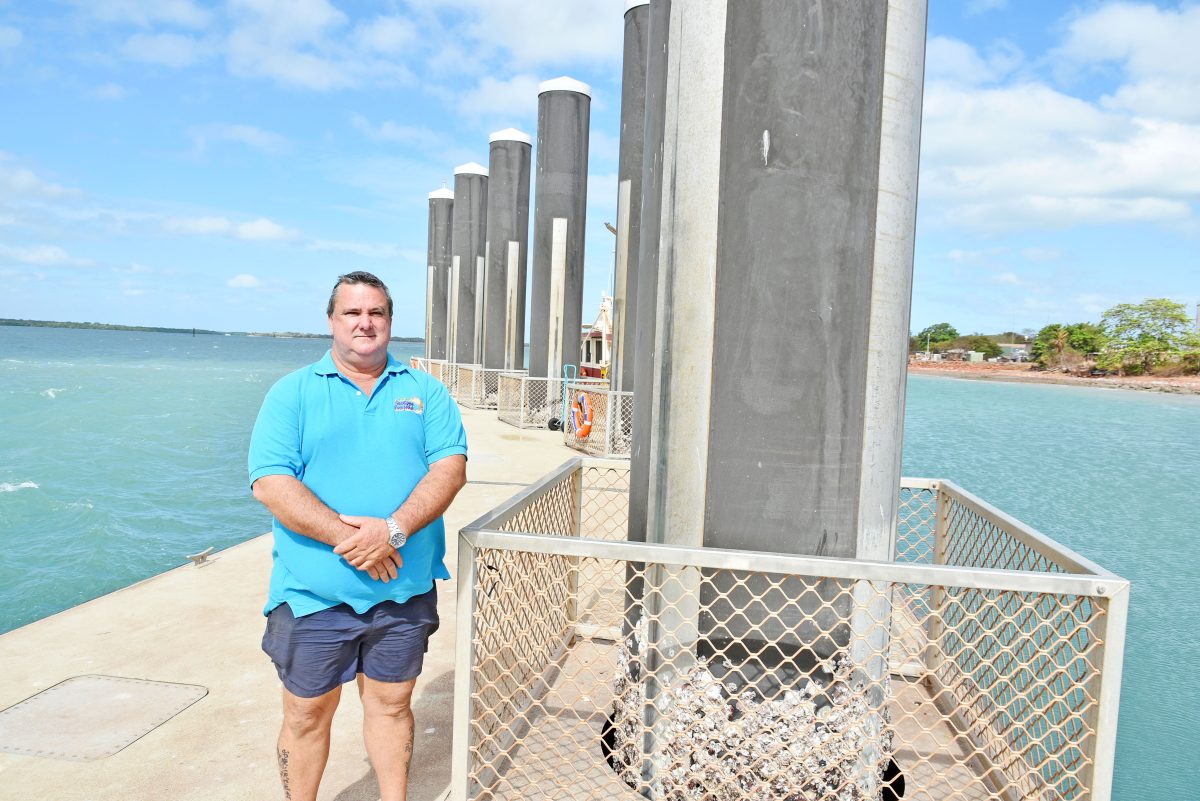
Shane Snow is the only commercial fisherman who operates out of Albatross Bay on a regular basis. He believes he’ll be forced out by the government.
WIDESPREAD net-free zones in the Gulf of Carpentaria would be a disaster for Weipa-based commercial fisherman Shane Snow, who fears it might be too late to save his industry.
While no closures have been made official by the Queensland government, the Department of Agriculture and Fisheries has put together a map of potential areas in the Gulf to be classed as net-free zones.
The map, which went public last month, has caused a great deal of stress amongst the current commercial fishing operators in the Gulf, who believe it is only a matter of time before they are shut down completely.
“We are the low-hanging fruit in the Gulf commercial fishing industry and I think the idea of closing off our fishing areas is to appease the radical green groups that, in my opinion, have infiltrated Queensland Fisheries management,” Mr Snow said.
“Shocked is probably not the right word for it … disgusted and mentally traumatised are better ways to describe it.
“This is a systemic problem coming from the Fisheries department and I often say this is the same fight we’ve been having for the last 40 years, but just with different faces.
“In recent times, Queensland Fisheries are trying to manage the man, not the fishery itself.”
Mr Snow, who is also the vice president of the Queensland Seafood Industry Association, said there was a common misconception about gillnet fishing.
“We’ve all seen the photos of turtles and sawfish caught in nets with no explanation of where those photos were actually taken. That’s not us,” he said.
“I personally don’t have any bycatch that is killed in my nets.
“The only thing we catch occasionally that we don’t use are catfish and we let them go alive.”
Mr Snow is the only operator in Albatross Bay and said there were already gillnet bans in place in some nearby river systems, some of which have been net-free zones for around 40 years.
He believes the Queensland government will soon close the whole of Albatross Bay to commercial fishing.
“If the proposed closures go ahead, it would destroy our business without a doubt,” he said.
“To operate out of Weipa would be difficult because you’d be dependent on the wet season and climatic conditions (if the proposed Northern closure was to go ahead).
“I have put ideas to the Fisheries managers so that I could keep operating in the proposed Northern zone … things like a grandfather clause where you leave the historical existing operator in place and have restrictions on the permit.
“The permit would be on the man, not the business, and it could not be transferrable.
“This is only my personal opinion in the area that my boat has historically fished and it does not mean for the rest of the fishery. We also have generational fishing families in the Gulf with younger generations coming into the industry that we need to keep fishing and it should be their right to carry on the family fishing legacy and to supply the seafood consumer with some of the best wild-caught fish in this country.”
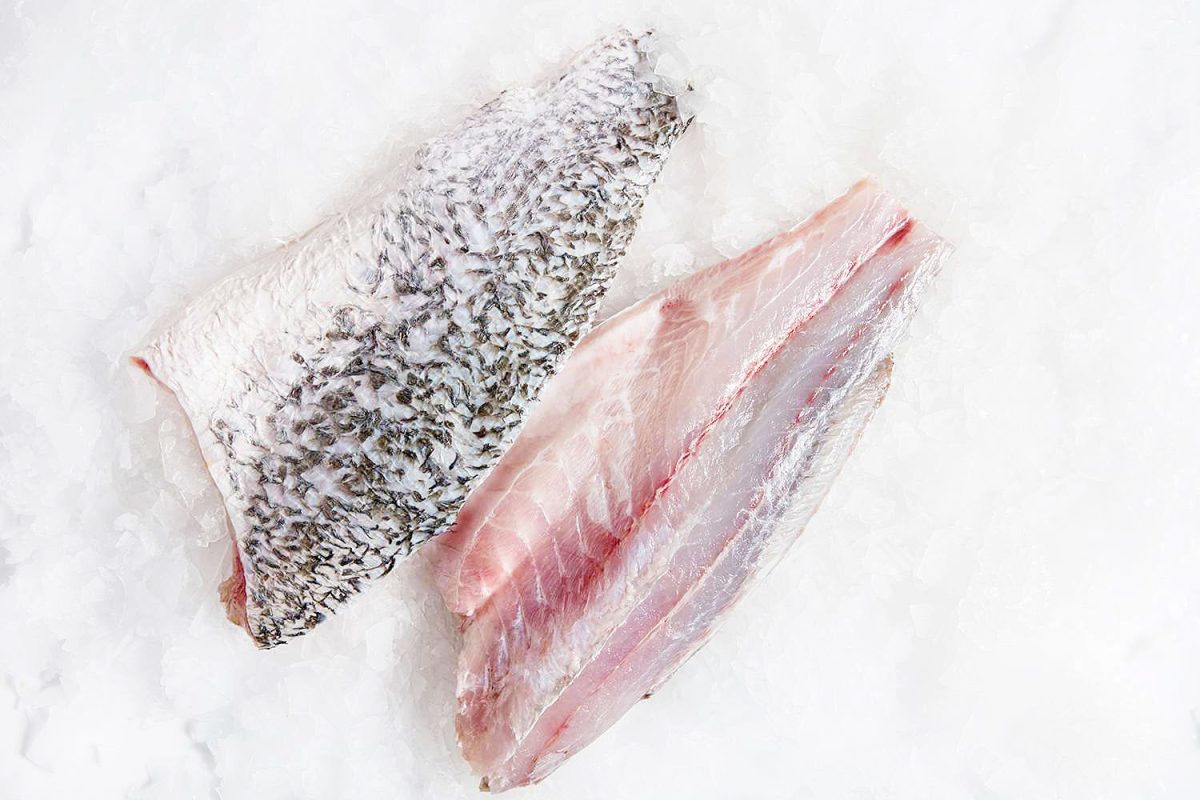
Queensland wild-caught barramundi will disappear from supermarkets and restaurants if net-free zones continue to be expanded in the state.
Mr Snow, who supplies king salmon and barramundi to a wholesaler in Cairns, said that he fished in the delta of the Pine River for only a few months of the year. The Pine is already a net-free zone, but the delta can be legally fished.
Queensland Fisheries monitors all licensed commercial fishing vessels 24 hours a day via satellite tracking, which is mandatory under the fishing permits.
“We fish smarter, not harder,” Mr Snow said.
“We target the times when we go fishing and we know through experience what time the barramundi and king salmon will be in a certain area.
“Sometimes I’ll only be there for one or two hours.
“I’m allowed to have my nets in the water for 24 hours, but that’s not how I operate. The fish are alive when I pull the nets in because they haven’t been caught up in them for very long.”
The Queensland government has faced pressure from UNESCO, as well as the World Wide Fund for Nature (WWF) to close off North Queensland waters to gillnet fishing.
The state has already rolled out bans on the Great Barrier Reef and is in the process of negotiating compensation with commercial fishing operators on the east coast.
UNESCO, threatening to put the Reef on its list of world heritage sites in danger, recommended that additional gillnet-free zones be created in the Gulf to allow some species to “rest”.
However, the commercial fishing industry in the Gulf says it wants to see the science behind the recommendation before the government starts to threaten its livelihood.
“As an industry, we’ve never been against science. In fact, we advocate for good science,” Mr Snow said.
“But as long as it’s good honest science and it’s not what I class as a ‘paid result’. We don’t want manipulated science or science with data omissions.
“This, to me, seems like a political stunt leading into the election for next year.
“It’s all about appeasing the green groups in the cities.”
Mr Snow said the recreational fishing industry would be next.
“I call (the lobbyists) the Green Wolf and, in my opinion, I don’t think their appetite will ever be satisfied,” he said.
“One radical green group has already highlighted the lack of restrictions in the recreational fishing industry and they’ve put out a media statement to say that rec fishing is next on their hit list.
“What I’ve experienced over many years is that these green groups have used the divide and conquer technique and tried to pit the recreational fishers against the commercial guys.
“To some degree, it has worked but a lot of the reccies are seeing that they’ll be next if they defeat us commercial fishermen. We need to stand together against this madness.”


